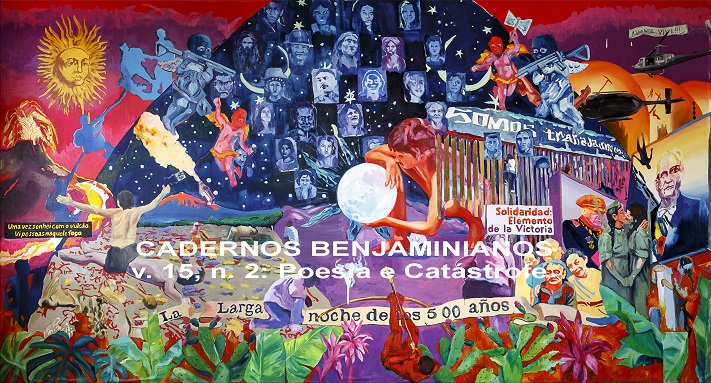A liberdade como desejo, a arte como resistência: autoritarismo e revolta em Manhã cinzenta, de Olney São Paulo e Contestação, de João Silvério Trevisan / Freedom as Desire, Art as Resistance: Authoritarianism and Revolt in Olney São Paulo’s Grey Morning and João Silvério Trevisan’s Contestation
DOI :
https://doi.org/10.17851/2179-8478.15.2.161-182Mots-clés :
cinema político, história, regimes autoritários, Teses benjaminianas, political cinema, history, authoritarian regimes, Walter Benjamin’s theses.Résumé
Resumo: O cinema constrói uma diversidade de narrativas importantes para discutir sobre a humanidade e seus modos de relacionar-se. Muitas delas tratam do autoritarismo dos estados e sua antítese, que é a revolta, a resistência. Objetivamos analisar duas dessas narrativas fílmicas, intituladas Manhã cinzenta e Contestação, ambas de 1969, tanto por serem filmes que tematizaram sobre o protagonismo dos estudantes frente ao autoritarismo e à violência das ditaduras, quanto por terem sido compostas por reutilização de imagens de arquivos fílmicos e jornalísticos, destes, sonoras de noticiários e clipagem de jornais. Essas narrativas serão lidas tendo como embasamento as teses benjaminianas, a fim de observar como foram construídas as temporalidades, a percepção dos acontecimentos, a construção da história. Essas narrativas suscitam reflexões e debates sobre os movimentos autoritários e repressivos, mostrando-nos a relação entre arte e política como um modo de colocar-se no tempo e no espaço. Assim, o engajamento de intelectuais e artistas, imbuídos da noção de que a arte pode ser um canal de mobilização efetiva, se mostra como uma forma de intervenção transformadora da realidade, e contestadora da grande narrativa da história.
Palavras-chave: cinema político; história; regimes autoritários; teses benjaminianas.
Abstract: Cinema builds a diversity of important narratives to discuss humanity and its ways of interacting. Many of them deal with state authoritarianism and its antithesis: revolt, resistance. This paper aims to analyze two of these film narratives, entitled Grey Morning and Contestation, both from 1969, for two reasons: they are documentaries that thematize students’ protagonism against the authoritarianism and violence of dictatorships; they were composed by reusing images of filmic and journalistic files, newscast audios and newspaper clippings. These narratives will be read on the grounds of Walter Benjamin’s theses, in order to observe how temporalities were constructed, together with the perception of events and the construction of history. These narratives raise reflections and debates on authoritarian and repressive movements, showing the relation between art and politics as a way of inserting oneself in time and space. Thus, the engagement of intellectuals and artists, imbued with the notion that art can be an effective channel for mobilization, stands as a form of intervention that transforms reality and challenges the grand narrative of history.
Keywords: political cinema; history; authoritarian regimes; Walter Benjamin’s theses.

